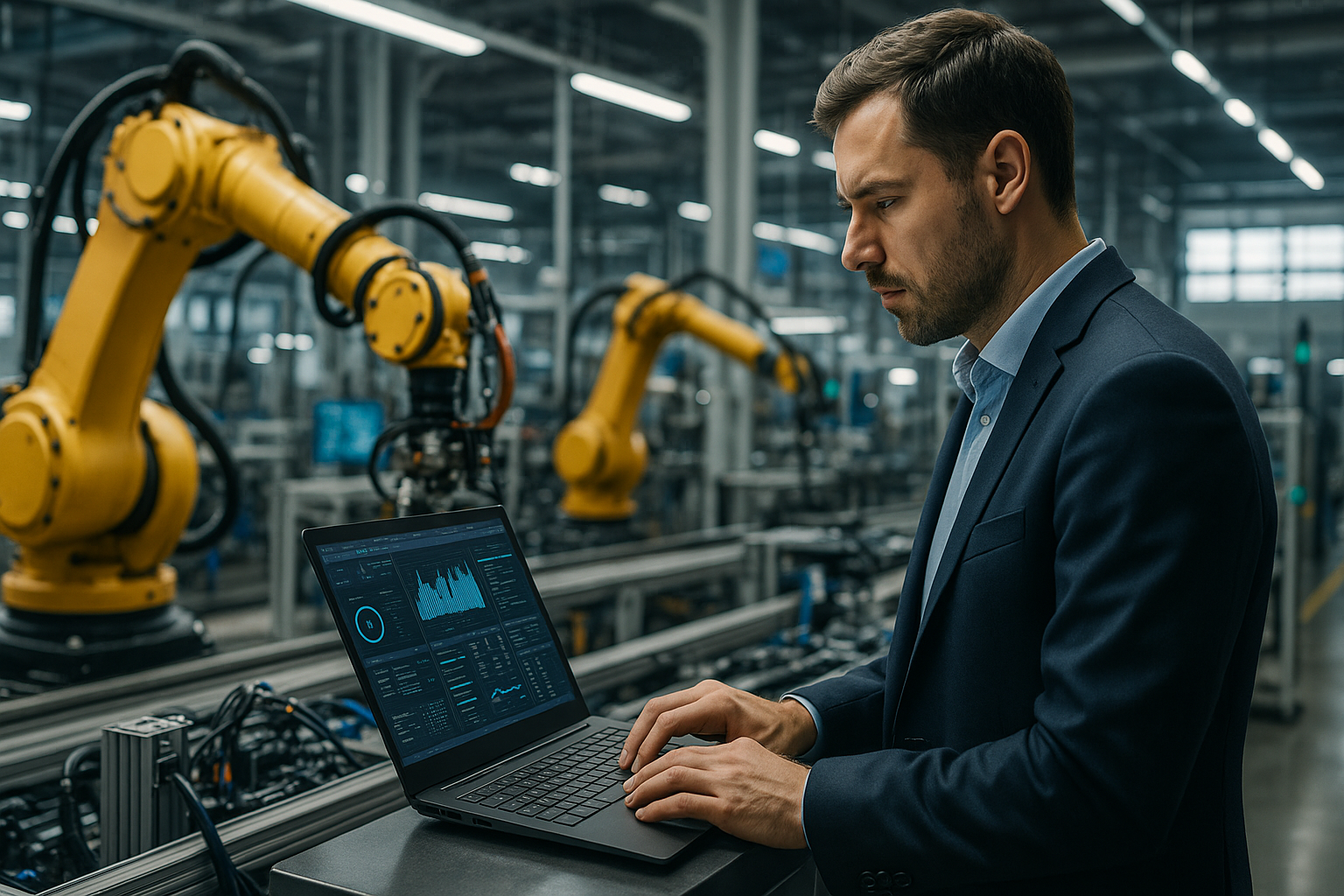Shaping the Future: The Role of Smart Factories in Modern Manufacturing
Introduction: The modern manufacturing landscape is undergoing a significant transformation, largely driven by the emergence of smart factories. These advanced production facilities are redefining the traditional boundaries of manufacturing, bringing a new level of efficiency and productivity to the industry.

A New Era in Manufacturing: The Emergence of Smart Factories
The concept of smart factories is not a recent phenomenon. Its roots can be traced back to the third industrial revolution, which saw the introduction of computer technology in manufacturing. The fourth industrial revolution, often referred to as Industry 4.0, is taking this a step further with the integration of Internet of Things (IoT) and advanced data analytics.
Smart factories leverage these technologies to create a fully connected and flexible system. In these factories, machines and equipment can communicate with each other, autonomously perform tasks and make decisions based on real-time data. This has a profound impact on all aspects of manufacturing, from design and production to supply chain management and customer service.
The Impact of Smart Factories on Business Operations
The implementation of smart factory technologies can bring a host of benefits to businesses. These include improved operational efficiency, increased productivity, reduced downtime, and enhanced product quality.
Smart factories offer the potential for real-time monitoring and control of all operational processes. This not only allows for the optimization of production but also enables rapid response to any issues or changes in demand. Furthermore, the data-driven insights provided by these technologies can assist in strategic decision-making, driving competitive advantage and business growth.
Challenges and Considerations in Implementing Smart Factory Technologies
While the benefits of smart factories are clear, their implementation is not without challenges. These include the need for significant investment in technology and infrastructure, the requirement for skilled personnel to manage and operate these systems, and the potential for increased cyber-security risks.
Despite these challenges, the potential benefits of smart factories make them an attractive proposition for businesses. However, careful planning and strategic decision-making are essential to ensure a successful transition.
Practical Insights: Maximizing the Potential of Smart Factories
-
Embrace digital integration: Ensure all systems and processes are fully connected to leverage the benefits of real-time monitoring and control.
-
Invest in skills development: Equip your workforce with the necessary skills to operate and manage the new technologies.
-
Prioritize cybersecurity: Implement robust security measures to protect your systems and data from potential cyber threats.
-
Consider scalability: Choose technologies and systems that can grow with your business to maximize return on investment.
The Future of Manufacturing
The rise of smart factories represents a significant shift in the manufacturing landscape. While the journey towards fully integrated, autonomous production facilities may be complex, the potential benefits make it an exciting prospect for businesses. By embracing these technologies and overcoming the associated challenges, manufacturers can position themselves at the forefront of the industry, driving productivity and growth in the process.




